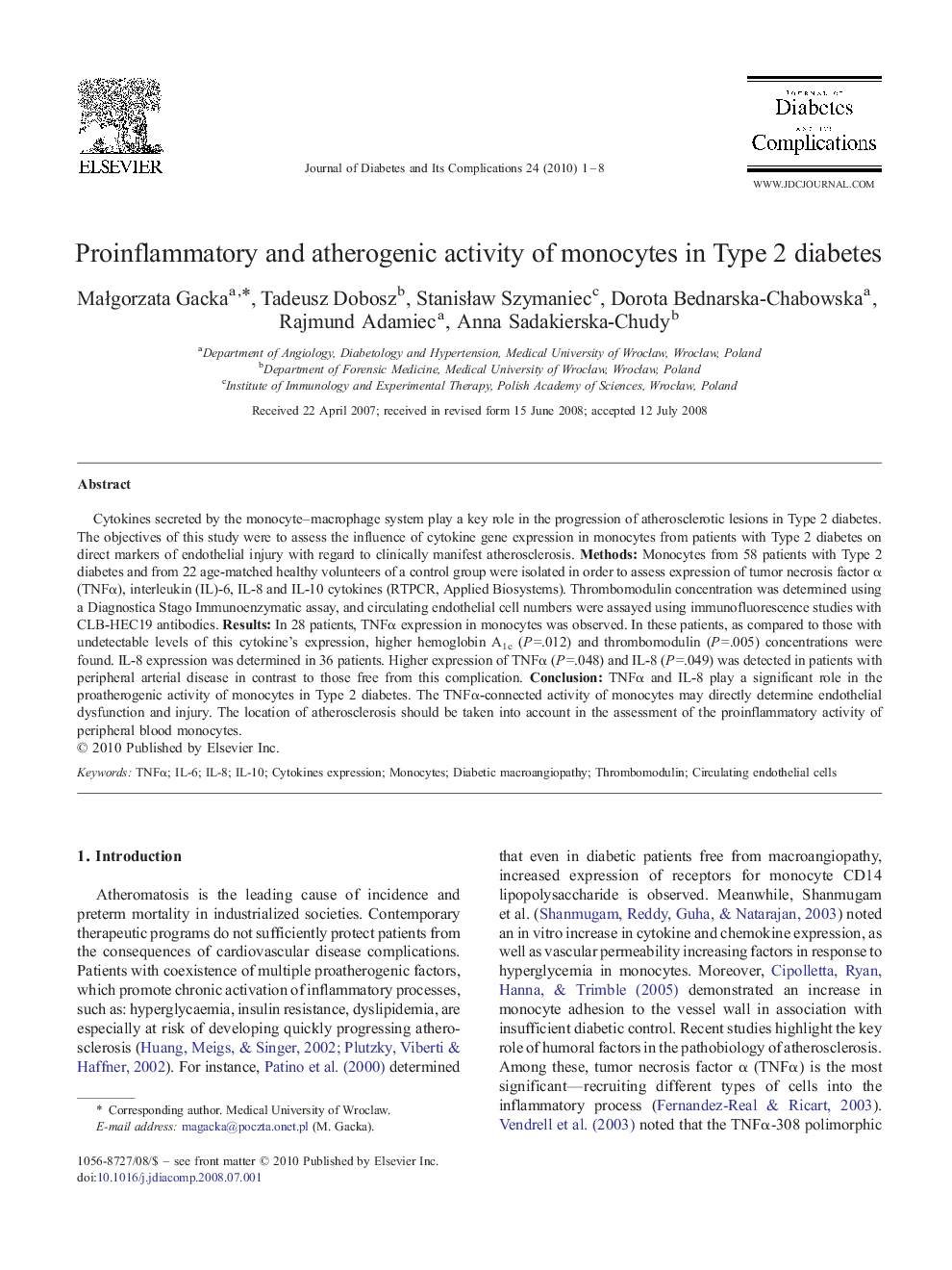| Article ID | Journal | Published Year | Pages | File Type |
|---|---|---|---|---|
| 2804595 | Journal of Diabetes and its Complications | 2010 | 8 Pages |
Cytokines secreted by the monocyte–macrophage system play a key role in the progression of atherosclerotic lesions in Type 2 diabetes. The objectives of this study were to assess the influence of cytokine gene expression in monocytes from patients with Type 2 diabetes on direct markers of endothelial injury with regard to clinically manifest atherosclerosis.MethodsMonocytes from 58 patients with Type 2 diabetes and from 22 age-matched healthy volunteers of a control group were isolated in order to assess expression of tumor necrosis factor α (TNFα), interleukin (IL)-6, IL-8 and IL-10 cytokines (RTPCR, Applied Biosystems). Thrombomodulin concentration was determined using a Diagnostica Stago Immunoenzymatic assay, and circulating endothelial cell numbers were assayed using immunofluorescence studies with CLB-HEC19 antibodies.ResultsIn 28 patients, TNFα expression in monocytes was observed. In these patients, as compared to those with undetectable levels of this cytokine's expression, higher hemoglobin A1c (P=.012) and thrombomodulin (P=.005) concentrations were found. IL-8 expression was determined in 36 patients. Higher expression of TNFα (P=.048) and IL-8 (P=.049) was detected in patients with peripheral arterial disease in contrast to those free from this complication.ConclusionTNFα and IL-8 play a significant role in the proatherogenic activity of monocytes in Type 2 diabetes. The TNFα-connected activity of monocytes may directly determine endothelial dysfunction and injury. The location of atherosclerosis should be taken into account in the assessment of the proinflammatory activity of peripheral blood monocytes.
